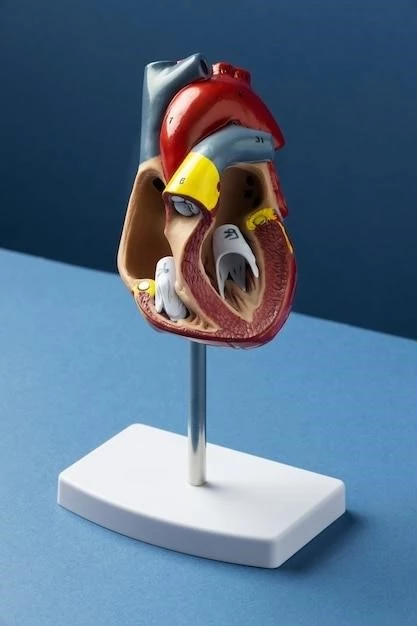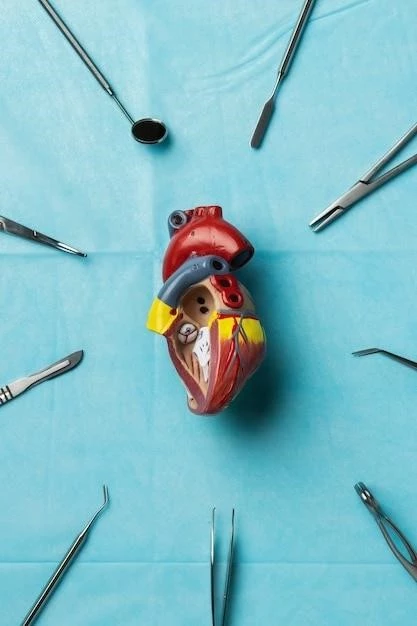Disease Overview ⏤ Heart Defect, Round Face, Congenital Retarded Development
Individuals born with disabilities like cognitive delay may also experience facial abnormalities such as round face due to genetic disorders․ These features often coincide with congenital heart defects and developmental delays, highlighting the complex nature of these conditions․
Introduction
When discussing the disease encompassing heart defects, round face, and congenital retarded development, it is crucial to understand the intricate interplay between genetic disorders, facial features, cognitive delay, and congenital heart defects․ Individuals facing these challenges often require specialized care and support to manage their conditions effectively, highlighting the importance of raising awareness and promoting inclusive practices in healthcare․
Understanding Heart Conditions
Individuals with heart defects, along with facial abnormalities and developmental delays, face complexities in managing their condition․ Congenital heart defects pose significant health challenges, impacting overall well-being․ It is crucial to comprehend the specific heart conditions present in these individuals to provide tailored care and interventions, considering the unique needs associated with genetic disorders and cognitive delay․
Facial Abnormalities and Features
Facial abnormalities like a round face can be characteristic of genetic disorders linked to cognitive delay and congenital heart defects․ These features may vary in severity and can impact an individual’s appearance and self-esteem․ Understanding the diverse facial features associated with such conditions is essential for healthcare professionals to provide comprehensive care that addresses both the physical and emotional aspects of the individual’s well-being․
Developmental Delays and Cognitive Delay
Developmental delays, including cognitive delay, are common among individuals with genetic disorders and congenital heart defects․ These delays can impact various areas of development, such as motor skills, language, and socialization․ Addressing developmental delays requires a multidisciplinary approach that focuses on early intervention, personalized therapies, and ongoing support to help individuals reach their full potential and improve their quality of life․
Genetic Disorders and Their Effects
Genetic disorders play a significant role in the manifestation of conditions like heart defects, round face, and congenital development delays․ These disorders can impact an individual’s health and development, leading to a range of physical and cognitive challenges․ Understanding the underlying genetic causes of these conditions is crucial for diagnosis, treatment, and genetic counseling to help individuals and their families navigate the complexities associated with genetic disorders effectively․
Diagnosis of Congenital Heart Defects
Diagnosing congenital heart defects in individuals with round face and developmental delays requires a comprehensive evaluation that may involve imaging tests, cardiac catheterization, and genetic testing․ Identifying the specific type and severity of the heart defect is crucial for determining appropriate treatment strategies and managing associated complications․ Early and accurate diagnosis is key to providing timely interventions and improving outcomes for individuals with these complex health conditions․
Treatment Options for Heart Conditions
Managing heart conditions in individuals with congenital retarded development and facial abnormalities involves a multidisciplinary approach that may include medications, surgical interventions, and cardiac rehabilitation․ Treatment options aim to address the specific heart defect, improve heart function, and enhance overall quality of life․ Close monitoring by healthcare professionals is essential to tailor treatment plans to meet the unique needs of each individual and optimize long-term outcomes․
Managing Developmental Delays
Addressing developmental delays in individuals with heart defects and round face requires early intervention programs, speech and occupational therapies, and educational support․ A holistic approach that focuses on individualized care plans can help individuals with cognitive delay reach their developmental milestones and enhance their overall well-being․ Collaborating with specialists and caregivers is vital in providing comprehensive support to manage developmental delays effectively․
Research and Advances in the Field
Ongoing research in the field of heart defects, round face, and congenital retarded development has led to significant advances in understanding the underlying causes and potential treatment options․ Emerging technologies, such as genetic testing and precision medicine, offer new insights into personalized interventions for individuals with these complex conditions․ Collaborative efforts between researchers, clinicians, and advocacy groups continue to drive innovation and improve outcomes for individuals facing these challenges․
Impact on Quality of Life
The combination of heart defects, round face, and congenital retarded development can significantly impact an individual’s quality of life, affecting physical health, social interactions, and emotional well-being․ Managing these interconnected challenges requires a holistic approach that addresses both the medical complexities and the psychosocial aspects of daily living․ Supportive care, educational resources, and community engagement play a vital role in enhancing the overall quality of life for individuals facing these diverse and complex conditions․
Supportive Care and Resources
Individuals with heart defects, round face, and congenital retarded development benefit from access to a range of supportive care services and resources․ These may include counseling, specialized therapies, peer support groups, and educational programs tailored to their unique needs․ Engaging with these supportive resources can help individuals and their families navigate the challenges associated with these conditions, promote well-being, and foster a sense of community and belonging․

Education and Awareness
Enhancing education and raising awareness about heart defects, round face, and congenital retarded development is essential to increase understanding and promote inclusivity․ Educating healthcare providers, educators, and the broader community about these conditions can lead to improved care, support, and acceptance for individuals facing these challenges․ By fostering awareness and advocating for inclusivity, we can create a more supportive and inclusive environment for individuals with diverse health needs․
Prevention Strategies
Preventing heart defects, round face, and congenital retarded development involves promoting healthy lifestyle habits, genetic counseling, and prenatal screenings․ Early detection of genetic risk factors and timely interventions can play a crucial role in preventing or minimizing the impact of these conditions․ Educating individuals and families about preventive measures and the importance of early intervention can help reduce the incidence and severity of these complex health challenges, ultimately improving outcomes and quality of life․
Case Studies and Success Stories
Exploring case studies and success stories of individuals living with heart defects, round face, and congenital retarded development can offer valuable insights into the challenges they face and the strategies that contribute to their well-being․ By sharing these narratives, we can inspire hope, raise awareness, and highlight the resilience and achievements of individuals overcoming these complex health conditions․ These stories underscore the importance of support, research, and inclusive healthcare practices in improving outcomes and quality of life․
Conclusion
In conclusion, the intersection of heart defects, round face, and congenital retarded development presents unique challenges that require a comprehensive, multidisciplinary approach․ By fostering awareness, providing support, advancing research, and promoting inclusive practices, we can enhance the quality of life for individuals living with these complex conditions․ It is essential to continue advocating for education, early intervention, and access to resources to empower individuals and their families on their journey towards improved well-being and holistic care․
